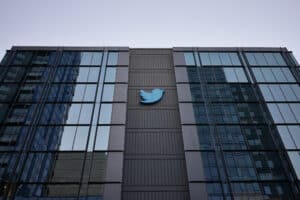According to officials, the Biden Justice Department is aggressively enforcing the federal antitrust statutes to ensure a fair and competitive market. In line with the Justice Department, a federal judge recently denied Penguin Random House’s bid to merge with Simon & Schuster. The judge argued that the merger of these two largest publishers in the globe may “diminish competition” for “top-selling books.”
HarperCollins Publishers employees, the only member of the “big four,” are also on an indefinite strike because of the low pay and lack of diversity. The HarperCollins strike comes in the wake of a rise in backing for labor unions nationally, which has reached 71%, its highest level since 1965.

The Court Ruling on Penguin’s merger with Simon & Schuster
In a brief statement, U.S. District Court Judge Florence Y. Pan issued her judgment and noted that part of it was currently under seal because of “confidential information.” Penguin Random House swiftly denounced the decision as “a regrettable setback for readers and authors.” The publisher declared in its announcement that it will look for a swift appeal.
According to the Justice Department’s Antitrust Division’s Assistant Attorney General Jonathan Kanter, “the judgment protects integral publication competitiveness and is a success for authors, readers, and ensures the unrestricted flow of ideas.” Most people expected Pan’s decision because, throughout most of the three-week trial in August, she showed support for the Justice Department’s argument that Penguin Random House’s proposed acquisition of Simon & Schuster for $2.2 billion may harm a crucial cultural sector.
However, it remains a sharp break from recent history, both in the literal sphere and beyond. The state has interfered little with the industry’s consolidation over the years, even when Random House and Penguin integrated in 2013 to establish the largest book publisher.
The DOJ Going for Mergers
If Penguin Random House and Simon & Schuster had merged, an entity superior to any competition could emerge. One of Simon & Schuster’s most well-known authors, Stephen King, spoke out against the merger last summer while testifying on behalf of the state. This determination also comes after the department recently lost two important antitrust suits in the federal courts.
The DOJ’s efforts to prevent one of the biggest sugar refiners in the country, Imperial Sugar Co., from acquisition by U.S. sugar, were unsuccessful, with the prosecution hinting at an appeal to the judgment. The department failed to stop UnitedHealth Group from acquiring the healthcare technology firm Change Healthcare for about $8 billion. UnitedHealth Group is among the largest health insurance provider in the United States. In a separate antitrust case in federal court in Boston, the DOJ has also been litigating American Airlines and JetBlue concerning their regional affiliation in the Northeast, referring to the merger as a de facto.
The Justice Department’s lawsuit against Penguin Random House did not highlight the company’s current market dominance or customer price increases. Rather, DOJ states that the new corporation would have a monopoly over the commercial book market – those featuring author advances of $250,000 or more. The advances and the number of publications would also decline.

The HarperCollins Union Workers Strike
On November 10, union workers at HarperCollins, one of the biggest publishers in the nation, began an indefinite strike. The strike follows a protracted negotiating process where workers demanded better family leave policies, a firmer commitment to a more diverse workforce, and a higher workers compensation. The UAW 2110 represents around 250 unionized workers, who work in the marketing, public relation, design, and sales fields. Since April, these workers have gone without any pay.
The message in the months before the strike focused on their dismal salaries, as the business claimed record profits in 2021. A recent report claims that HarperCollins employees make an average compensation of $55,000, with the basic pay being $45,000. According to Stephanie Guerdan, an associate editor at HarperCollins Children’s Books and shop steward at the HarperCollins Union, none of it can help one survive in New York City. Guerdan also says that the employer asks the workers to get to their Manhattan offices at least once a week.
Executives at HarperCollins informed all staff members in a company-wide memorandum that they could not come to a collective bargaining deal with their unionized workers. According to the firm, it has “made plans to ensure that activities run unhindered during the strike.” After two years of expansion, the company’s revenue is down about 11%, according to recently revealed financials for the quarter that ended September 30. The earnings fell by 54% to $39 million.
In a statement, a company representative said: “HarperCollins has accepted a series of demands made by the United Auto Workers Union for consideration in a contract renewal. We shall carry on in good faith with the negotiations, notwithstanding our disappointment that a deal has not been achieved.”
Support for the Strike
Striking workers are asking authors, agents, and freelancers not to do any new business with the employer, but to proceed with any current contractual agreements. On Twitter, different authors and booksellers have also expressed their solidarity about the strike.
According to romance author Allie Therin, “inhabitable salaries and unsustainable environment lead to burnout and turnover. I endorse fair worker contracts.” Bree Paulsen, an artist and author of graphic novels, wrote on Twitter: “HCP union has my full backing.”
Laura Harshberger, a senior production editor at HarperCollins Children’s Books and the unit head of the union, also said living with her parents and doing part-time retail work allowed her to work in publication only until she was in her 20s. “When employees do not get decent pay, that shrinks the perspective of whoever decides what publications to publish. That hurts both the company and the consumers,” Harshberger wrote in a tweet.
Elise Bryant commented, “as a HarperCollins author and former teacher union participant, I support the union. They deserve a decent contract and fair pay, considering how many talented people strive so hard to make our publications a reality.”



